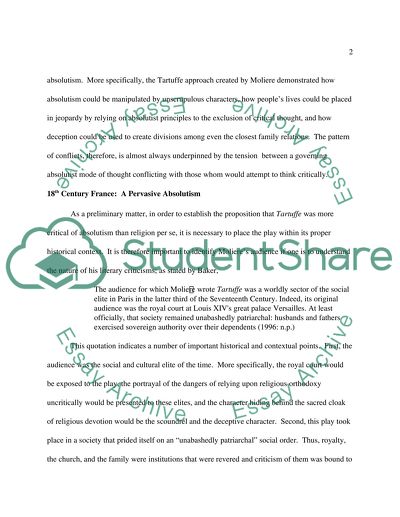Moliere's Tartuffe Book Report/Review Example | Topics and Well Written Essays - 1250 words. Retrieved from https://studentshare.org/miscellaneous/1522524-molieres-tartuffe
Moliere'S Tartuffe Book Report/Review Example | Topics and Well Written Essays - 1250 Words. https://studentshare.org/miscellaneous/1522524-molieres-tartuffe.


